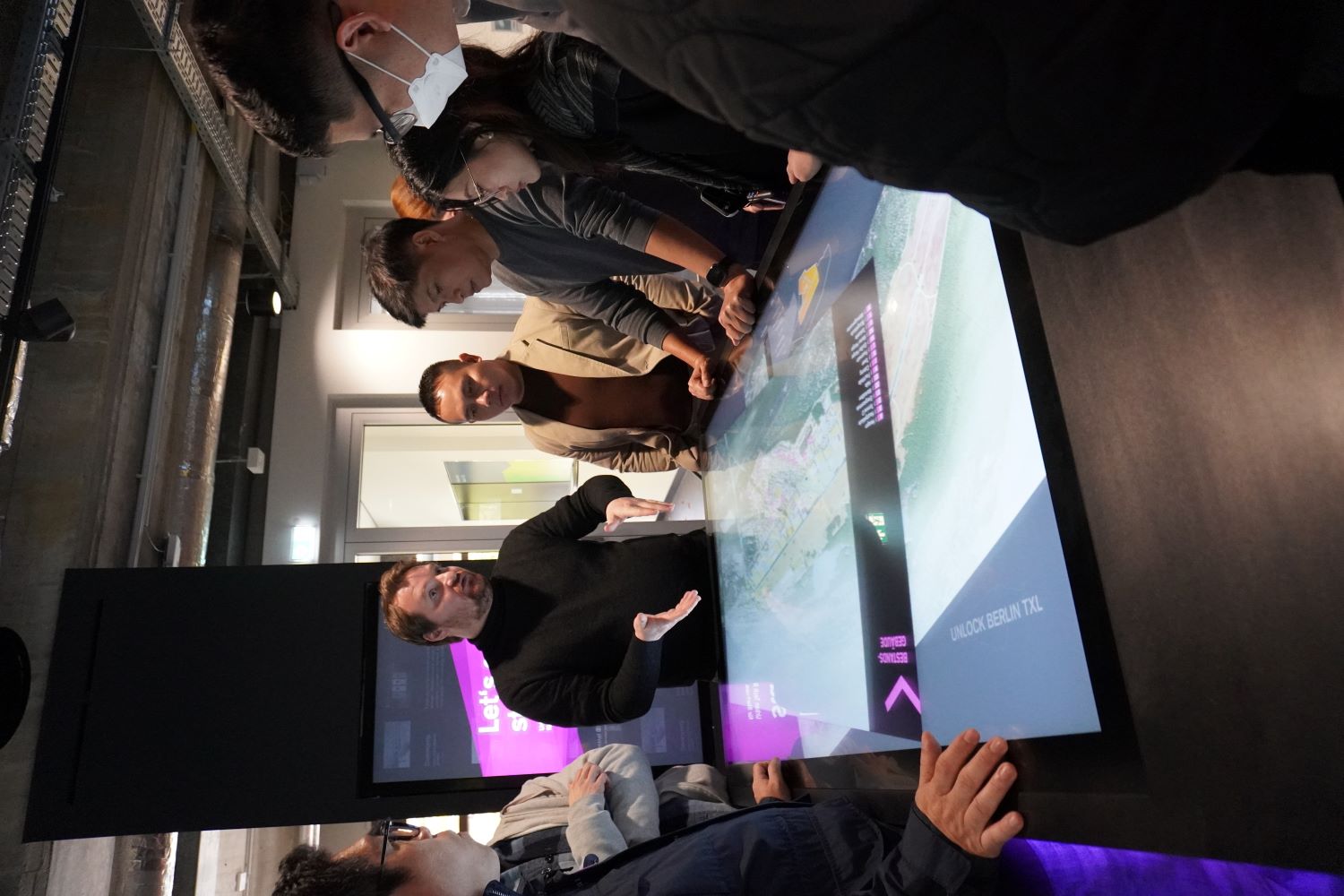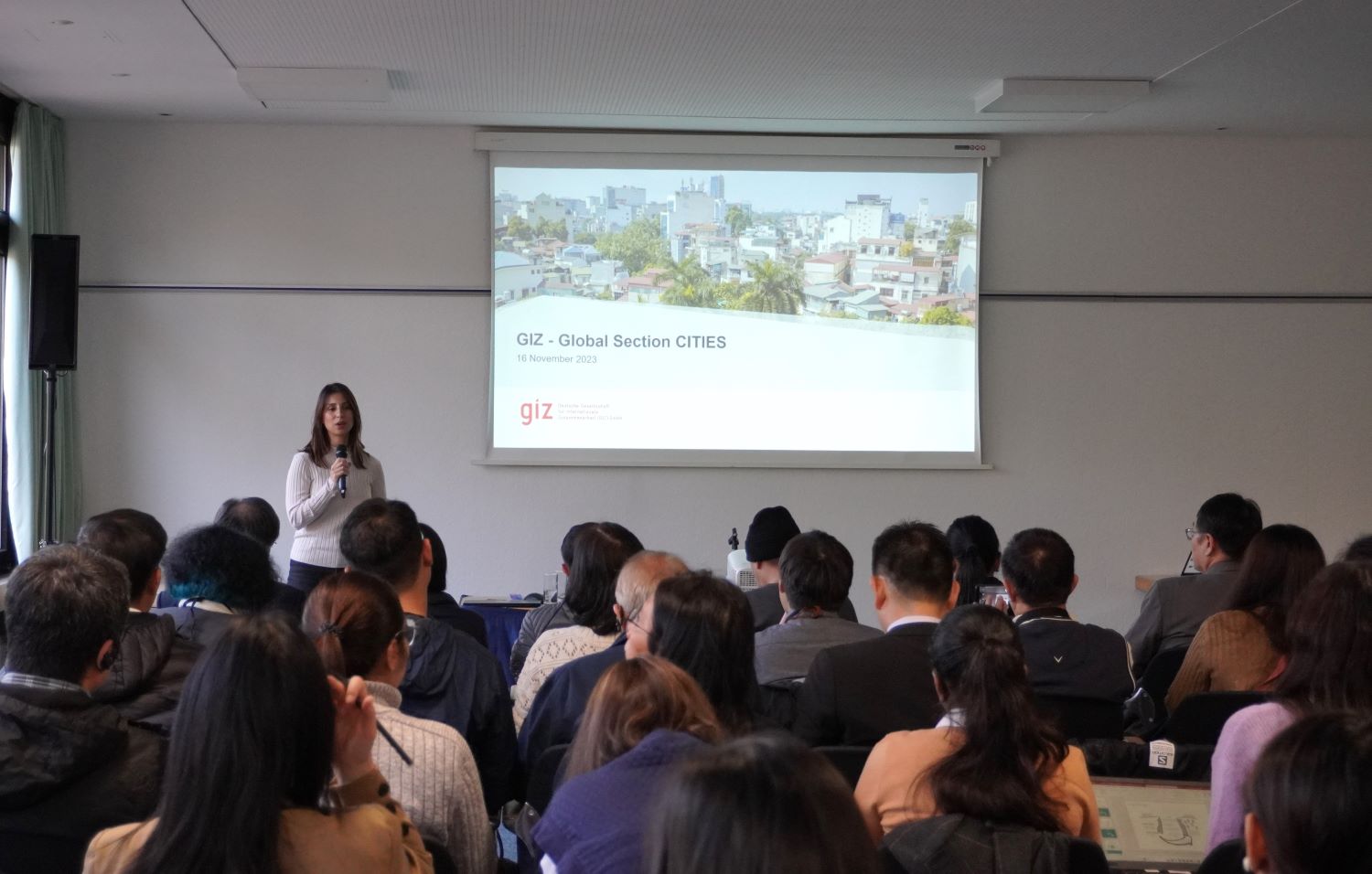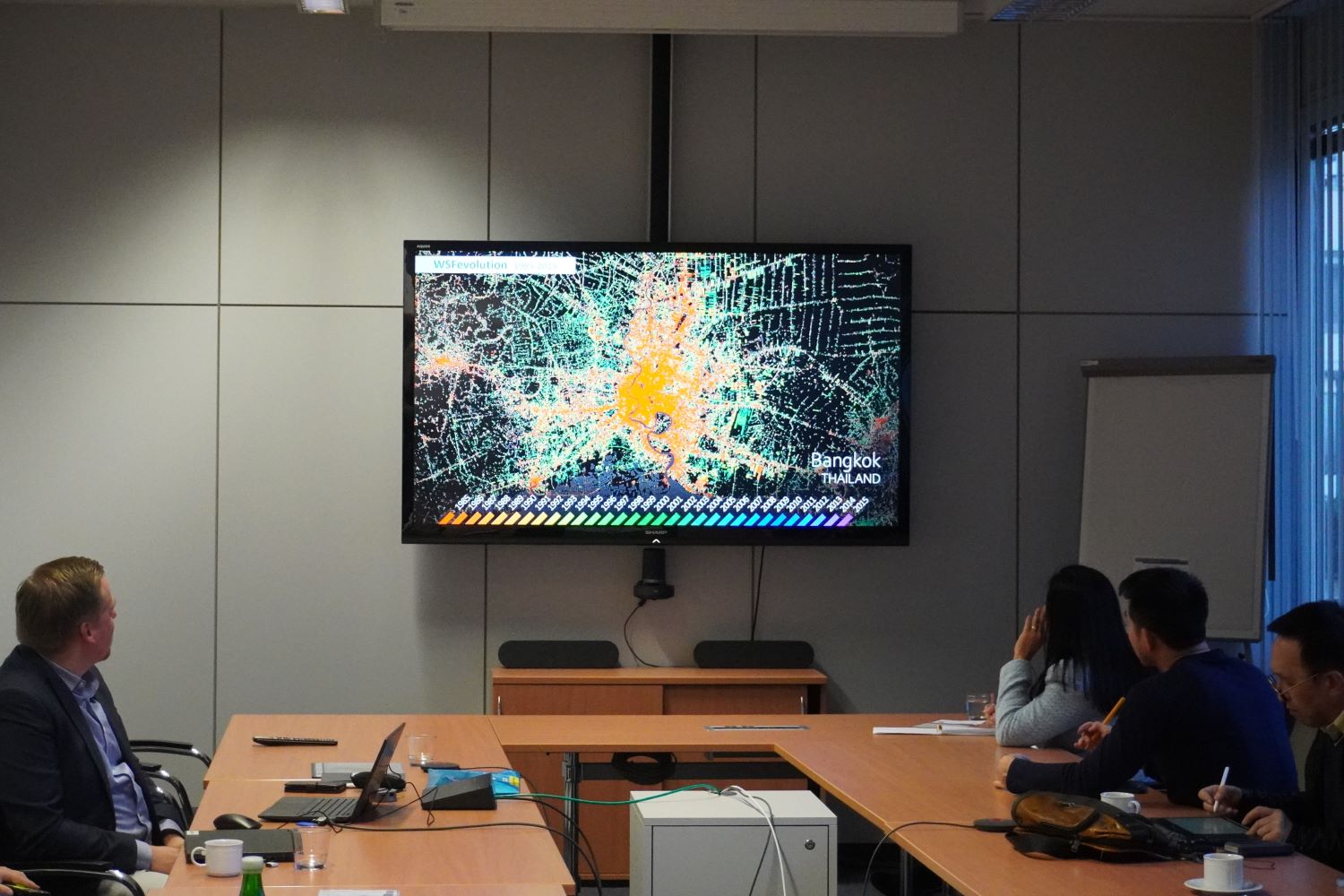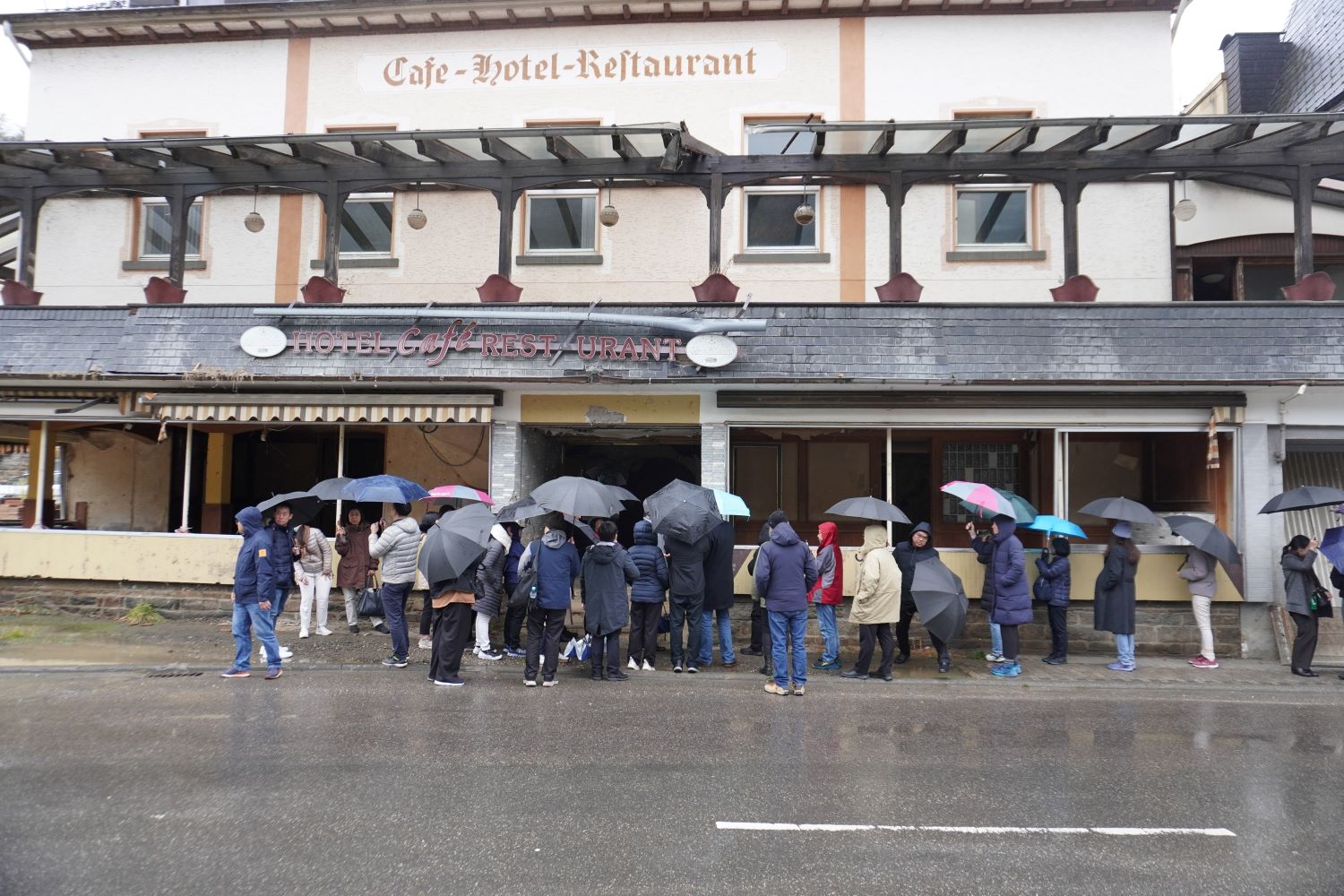Urban-Act Study Trip to Germany strengthens cross-sectoral cooperation on Climate-sensitive Urban Development
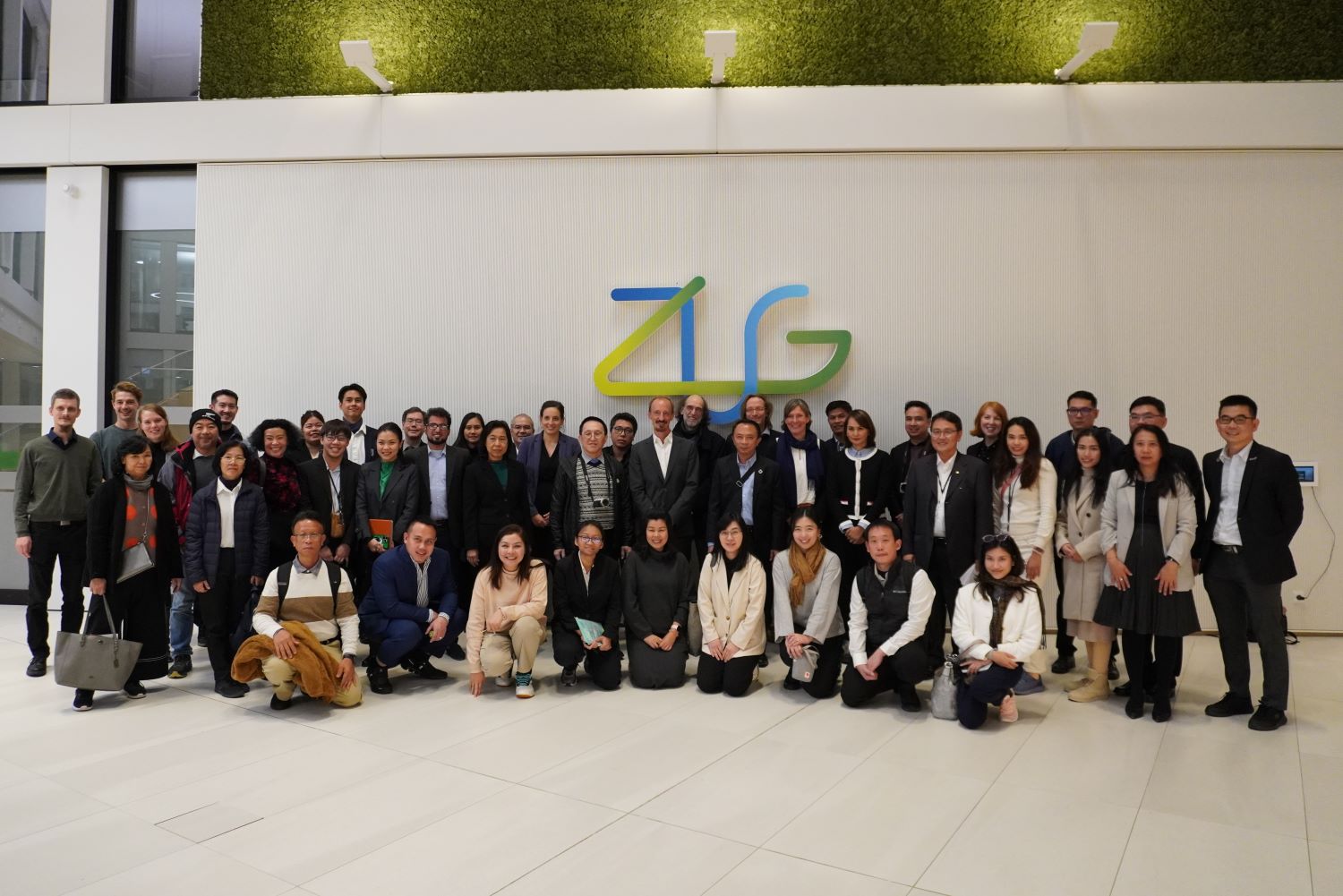
A group photo of the Thai delegation, representatives from BMWK, BMWSB, ZUG, and GIZ Urban-Act, Thailand.
- The Urban-Act project arranged a study trip to Germany facilitating cross-sectoral collaboration in promoting climate-sensitive urban development in Thailand.
- The Thai delegation was composed of representatives from the Department of Public Works and Town and Country Planning (DPT), the Foreign Affair Division of the Office of the Permanent Secretary of Interior, the Office of Transport and Traffic Policy and Planning (OTP), the Office of Natural Resources and Environmental Policy and Planning (ONEP), the Thai Meteorological Department (TMD), Chulalongkorn University, Thammasat University, and representatives from three pilot cities: Chiang Mai, Khon Kaen and Phuket.
- Knowledge exchange and best practices from the study trip in Germany inspired Thai agencies to increase collaboration efforts in promoting sustainable urban development.
The Urban–Act (Integrated Urban Climate Action for Low–Carbon & Resilient Cities) project facilitated a study trip to Germany from 11 – 19 November 2023. Mr. Pongrat Piromrat, Director General of the Department of Public Works and Town and Country Planning led the delegation while Second Lt. Soramongkhon Mangalasiri, Director of Foreign Affair Division, Office of the Permanent Secretary of Interior served as the focal point for the project’s political partner. Representatives included high-level and professional officers from the Foreign Affairs Division, Office of the Permanent Secretary of Interior, the Department of Public Works and Town and Country Planning (DPT), the Office of Transport and Traffic Policy and Planning (OTP), the Office of Natural Resources and Environmental Policy and Planning (ONEP), the Thai Meteorological Department (TMD), Chulalongkorn University, Thammasat University, as well as representatives from three pilot cities, namely Chiang Mai, Khon Kaen and Phuket. Representatives from the University of Stuttgart and Technical University Dortmund as regional consortium partners also took part in the study trip.
The purposes of the study trip were to inspire, tighten and facilitate cross-sectoral cooperation opportunities in addressing climate change in the urban sector through exchanges of good practices and insights into experiences of climate-sensitive urban development, cities and local climate actions, as well as SDGs localisation in Germany.
The delegation spent a week in Germany. The first three days mainly focused on learning and exchanges on climate-sensitive urban development policy and planning at the federal level as well as climate action, urban green space, sponge city, and air quality at the city level. Visits were made to the Federal Ministry for Economic Affairs and Climate Action (BMWK), the Federal Ministry for Housing, Urban Development and Building (BMWSB), and the German Environment Agency (UBA). Another highlight was the visit to the Tegel Project involving the transformation of an old airport to a smart city.
The last two days focused on climate action, with the delegation learning about flood protection measures and heavy rain precautions at the city level, combined with a site visit to the Old Town to see the storage of mobile flood protection systems operated by Stadtentwässerung Köln, AöR (StEB). Other activities included an exchange with the city of Bonn on climate action and SDG localisation, a visit to German Aerospace Center (DLR) as well as an exchange meetings with GIZ Cities Group and representatives from the United Nations University-Institute for Environment and Human Security (UNU-EHS).
Professor Joern Birkmann, Director of the Institute of Spatial and Regional Planning (IREUS), University of Stuttgart. joined the group on the final day and led the visit to the Ahr Valley, which was devastated by flooding in July 2021. He explained the implementation of adaptation and recovery measures such as settlement retreat, relocation of public infrastructures, and migration after the disaster struck.
After the five days in Germany, the “Sponge City” concept earned the most interest and has been picked by the Thai delegation for further study to be applied for the next step of climate-sensitive urban development in the Thai context.
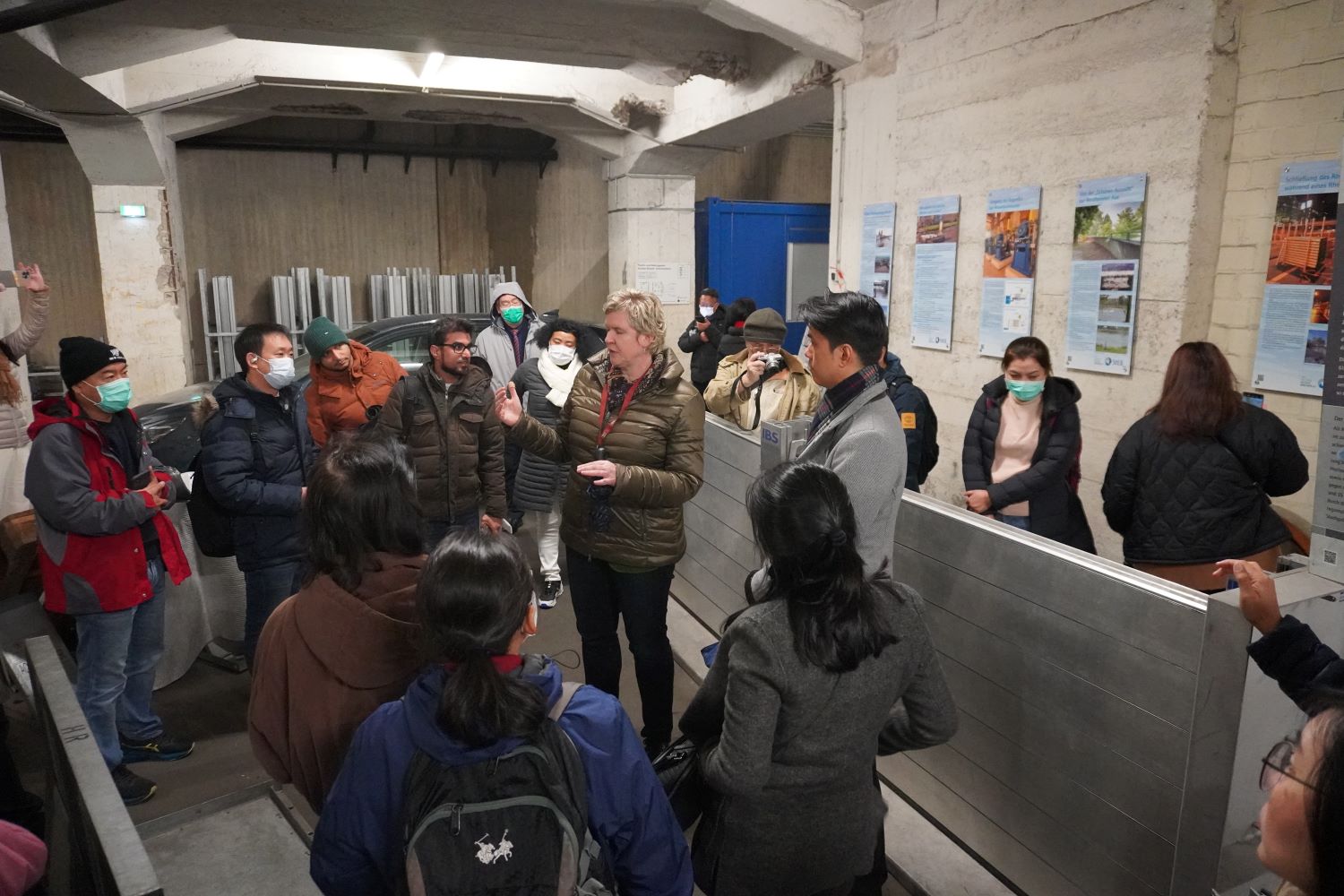
Thai delegation visited the storage of mobile flood protection systems at the Old Town in Cologne.
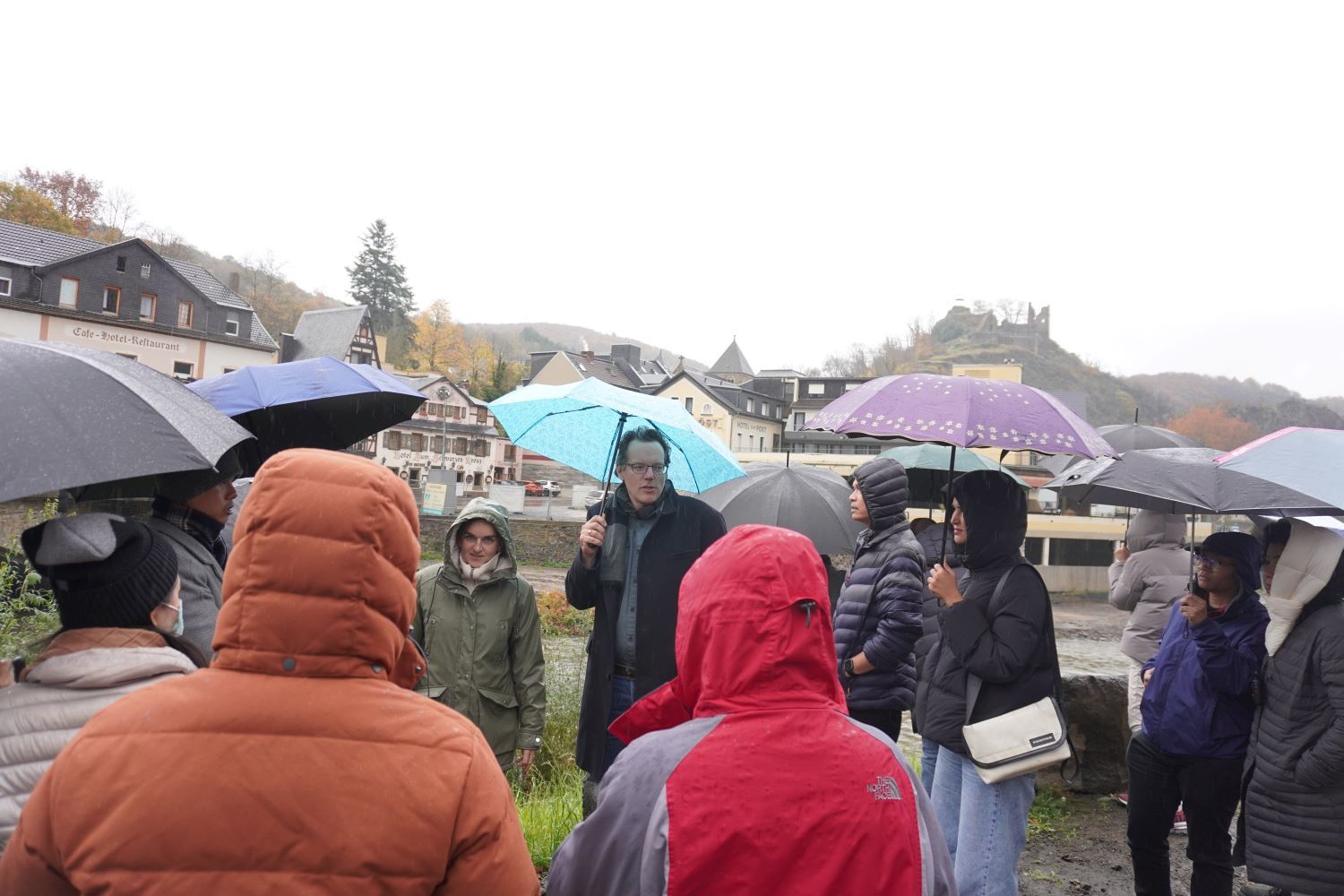
Professor Joern Birkmann, University of Stuttgart, presented background information on the area to the Thai delegation and led them on a walk through the damaged village of Althenahr in Ahr Valley, Cologne.
About Us
The Integrated Urban Climate Action for Low-Carbon and Resilient Cities (Urban-Act) is a regional project funded by the International Climate Initiative (IKI) of the German Federal Ministry for Economic Affairs and Climate Action (BMWK) over the period April 2022 to September 2026. This regional project aims to support the transformation towards low-carbon and resilient urban development in Asia-Pacific while also contributing to countries’ Nationally Determined Contributions (NDCs) and the advancement of the Sustainable Development Goals (SDGs). Urban-Act is implemented in China, India, Indonesia, the Philippines and Thailand. Regional consortium partners include the Deutsche Gesellschaft für Internationale Zusammenarbeit (GIZ) GmbH, the United Nations Economic and Social Commission for Asia and the Pacific (ESCAP), United Cities and Local Governments Asia-Pacific (UCLG ASPAC), the Technical University Dortmund and the University of Stuttgart, as well as national consortium partners in each of the 5 partner countries. The Office of the Permanent Secretary for Interior (OPSI), Ministry of Interior (MoI), is the political partner in Thailand.
Gallery
Heinrich Gudenus
Project director of Urban-Act
Email:heinrich.gudenus(at)giz.de
